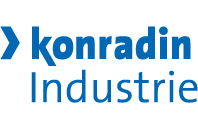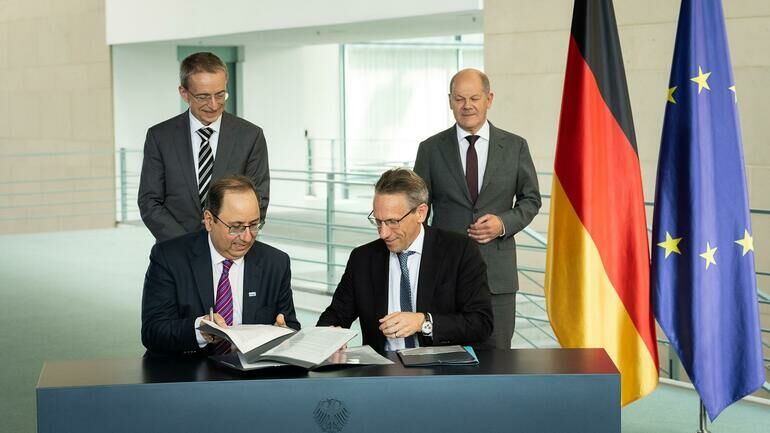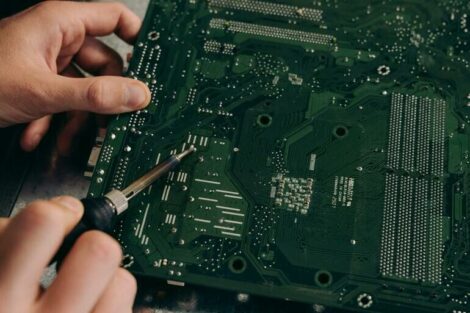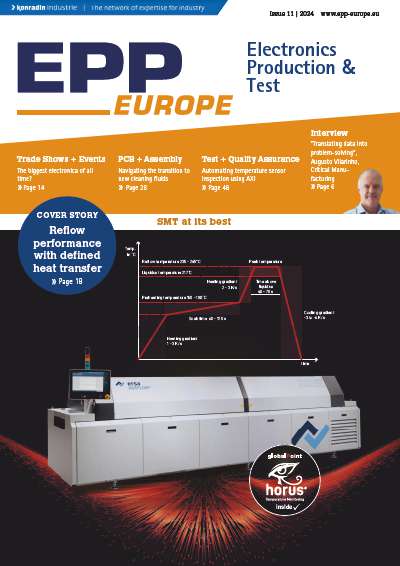US semiconductor giant Intel and the German federal government have reached an agreement to increase state subsidies for the company’s planned wafer fabrication site in Magdeburg in the state of Saxony-Anhalt in Germany. According to reports citing government sources, the manufacturer will now receive EUR 9.9 billion in funding instead of the EUR 6.8 billion previously promised. In return, Intel has agreed to invest more than EUR 30 billion total in the project: a significant increase on the EUR 17 billion originally planned.
Intel says the change reflects the expanded scope and change in economic conditions since the site was first announced.
The company plans to construct two leading-edge semiconductor facilities (also known as “fabs”) in Germany. The first facility is expected to enter production in four to five years following the European Commission’s approval of the incentive package. Given the current timeline and scale of the investment, the company plans to deploy more advanced Angstrom-era technology in the facilities than originally envisioned. The Magdeburg site will serve Intel products and Intel Foundry Services customers.
The site is expected to create 7,000 construction jobs over the course of the first phase of the build, approximately 3,000 permanent high-tech jobs at Intel and tens of thousands of additional jobs across the industry ecosystem.
“Building the ‘Silicon Junction’ in Magdeburg is a critical part of our strategy for Intel’s growth. Combined with last week’s announcement of our investment in Wrocław, Poland, and the Ireland sites we already operate at scale, this creates a capacity corridor from wafers to complete packaged products that is unrivaled and a major step toward a balanced and resilient supply chain for Europe,” said Intel CEO Pat Gelsinger. “We’re grateful to the German federal government, Chancellor Olaf Scholz and the government of Saxony-Anhalt for their partnership and shared commitment to fulfilling the vision of a vibrant, sustainable, leading-edge semiconductor industry in Germany and the EU.“
Chancellor Olaf Scholz of Germany said, “Today’s agreement is an important step for Germany as a high-tech production location – and for our resilience. Intel‘s semiconductor production in Magdeburg is the single largest foreign direct investment in German history. With this investment, we are catching up technologically with the world’s best and expanding our own capacities for the ecosystem development and production of microchips. This is good news for Magdeburg, for Germany and for all of Europe.”
Vice Chancellor and Federal Minister for Economic Affairs and Climate Action Robert Habeck said, “Today‘s agreement is a milestone for Germany as a location for innovation and investment, for jobs, resilience and competitiveness. Intel‘s investment will raise semiconductor production in Germany to a new level and is an important contribution to growing European sovereignty.”
Intel says its investment will drive significant economic benefits not only in Magdeburg and Saxony-Anhalt, but across the country and throughout the European Union. „The new wafer fabrication site in Magdeburg will create a first-of-its-kind, leading-edge end-to-end semiconductor manufacturing value chain in Europe, serving European customers and helping to fulfill the EU’s ambitions for a more resilient semiconductor supply chain,“ the company said.












